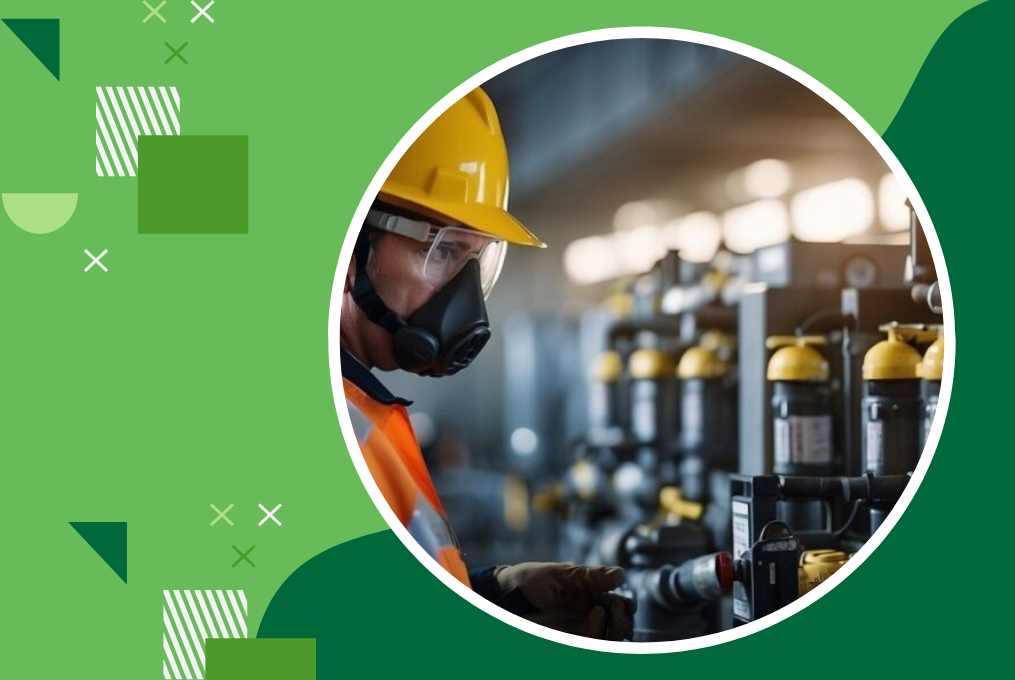Gas Safety Measures: Guidelines for Handling and Storing Industrial Gases

Industrial gases are used in many factories and workplaces. They help make products, weld, clean, and perform many other tasks. However, industrial gases can be dangerous if not handled and stored correctly. Here are some simple guidelines to ensure safety when dealing with these gases.
Understanding the Gases
Before using any gas, it is essential to know its properties. Gases can be flammable, toxic, or corrosive. For example, oxygen can make fires burn hotter and faster, while carbon monoxide is poisonous. Always read the safety data sheet (SDS) provided by the gas supplier. This sheet will give you essential information about the gas, including how to handle and store it safely.
Proper Storage
Ventilation: Store gases in a well-ventilated area. This helps prevent the build-up of dangerous fumes.
Labeling: Clearly label all gas containers with the name of the gas and any associated hazards.
Securing Cylinders: Gas cylinders should be stored upright and secured with chains or straps to prevent them from falling over.
Temperature Control: Keep gas cylinders away from extreme heat or cold. High temperatures can cause the gas to expand and explode, while cold temperatures can make some gases become liquids.
Separation: Store flammable gases away from oxygen and other oxidizers. This reduces the risk of a fire or explosion.
Safe Handling

Training: Make sure everyone who handles gases is adequately trained. They should know how to use the equipment, understand the hazards, and know what to do in an emergency.
Protective Gear: Always wear appropriate protective gear, such as gloves, goggles, and masks. This can protect you from burns, inhaling toxic fumes, and other injuries.
Inspect Equipment: Regularly check gas cylinders, valves, and hoses for leaks or damage. Never use damaged equipment.
Proper Use: Use the gas only for its intended purpose. Misusing gases can lead to dangerous situations.
Open Slowly: When opening a gas cylinder, do it slowly. This helps prevent a sudden release of gas, which can be dangerous.
Emergency Procedures
Know the Plan: Every workplace should have an emergency plan in place. Ensure you know what to do if there is a gas leak or other emergency.
First Aid: Learn basic first aid for gas-related injuries. For example, know how to treat burns or what to do if someone inhales toxic fumes.
Emergency Equipment: Keep fire extinguishers, gas masks, and other equipment nearby. Please make sure they are easy to access and in good working condition.
Evacuation: If there is a significant gas leak, evacuate the area immediately. Do not try to fix the problem yourself. Call for professional help.
Regular Maintenance

Routine Checks: Conduct regular checks and maintenance on all gas-related equipment. This helps catch problems before they become serious.
Record Keeping: Keep records of all inspections, maintenance, and training. This can help you stay organized and ensure all safety measures are followed.
Update Procedures: Safety guidelines and regulations can change. Stay informed about the latest safety standards and update your procedures accordingly.
Conclusion
Handling and storing industrial gases safely are crucial to prevent accidents and injuries. You can create a safer workplace by understanding the properties of the gases, storing them properly, handling them with care, having emergency procedures in place, and conducting regular maintenance. Always prioritize safety and ensure everyone is safely trained and equipped to handle gases.